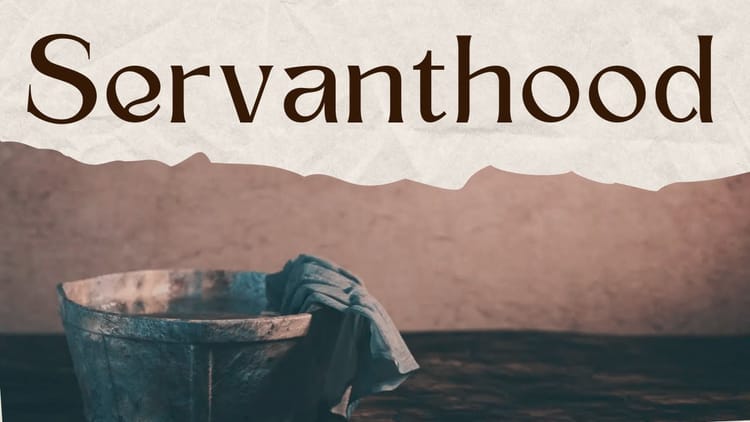Ephesus Syndrome

Have We Lost Our First Love?
The Church at Ephesus has my attention today and I can’t go on with my day until I share this with you. It has pierced my heart with truth and reality, leading me to repentance and a re-evaluation of some of my thoughts, priorities, and recent responses in unpleasant and disagreeable confrontations. But let me digress …
My husband and I have been working on some aesthetic upgrades to a few rooms in our house. We’re about 95% done with our living room and about 90% done with a small quiet office for me to study and write. Our main office where our desks are together in the same room, tends to provide a lot of distraction with regular household activity, often frustrating me because of interruptions when trying to write or study. This repurposed little room is working out so much better for me.
On the wall in front of my desk is an arrangement of photographs from mission trips to India, Africa, and Haiti. In the center of the display is a picture of a globe with the Great Commission inscribed on it. It serves as a constant reminder of my purpose. Not just international missions, but the Great Commission. It’s what I think about constantly. And, it’s what challenges me both emotionally and spiritually when I see it overlooked or misplaced in the priorities of Christian organizations, churches and individual lives. We’ve forgotten to heed the very last words Jesus spoke to His disciples. In fact, I believe this is the very problem the Church at Ephesus had in the second chapter of Revelation … they forsook their first love.
“To the angel of the church in Ephesus write: These are the words of him who holds the seven stars in his right hand and walks among the seven golden lampstands. I know your deeds, your hard work and your perseverance. I know that you cannot tolerate wicked people, that you have tested those who claim to be apostles but are not, and have found them false. You have persevered and have endured hardships for my name, and have not grown weary. Yet I hold this against you: You have forsaken the love you had at first. Consider how far you have fallen! Repent and do the things you did at first. If you do not repent, I will come to you and remove your lampstand from its place.” (Rev 2:1-5 NIV)
There are many directions I could go with this, but the Spirit is speaking to me in certain terms based on His words to the Church at Ephesus. We’ve got to ask ourselves what were the things they did at first that they have forsaken? What was the priority when the assembly of believers in Ephesus began? How does that differ from their priorities at the time of John’s vision on the Isle of Patmos?
I’ve listened to and read the transcript of a podcast by Dr. Michael S. Heiser (see more about him below) and have found his teaching on Revelation 2 incredibly insightful. Let me attempt to summarize some of it in the context of my understanding.
The letter to the Angel at Ephesus commended the believers at Ephesus. They were doing good things including enduring persecution They were careful to test the words of those who came with a new or false gospel, working hard to be discerning and reject distorted or erroneous teachings. But, even with all the commendable things they were doing, apparently, something was sorely wrong! The loss of their first love was so grievous to the Lord that He presented them with a stern warning that He would remove the lampstand (the angel, messenger, overseer, protector, guardian) from its place among them. It reminds me of “Ichabod” whereby the glory had departed from Israel.
My heart suddenly felt a familiar twinge of pain as I reflected on the day of my earthly dad’s passing. I received a call very early in the morning informing me that it appeared he wouldn’t last the day. I hurriedly made arrangements for the 2-hour drive to pick up my aunt who was like a second mother to me and essentially rearranged my whole day. Every minute that passed seemed like hours. I couldn’t help but watch the clock on the dashboard as I drove, praying that he would last until I got there. Sadly, regrettably, and remorsefully, I was unavoidably delayed and unable to be by his side during his last hours. When I arrived, I ran into the building, anxious for the elevator door to open and take me to his floor. As the doors opened, the nurses were standing there just shaking their heads; I was greeted with the news that he had just passed about five minutes earlier. It was a life-altering experience and continues to be when I think of missing that last cherished encounter. Even now, I can’t help but cry. I have no words to cling to. I had no idea what was most important to him that he would utter into my heart. I have nothing that revealed his truest and deepest heart to me as he breathed his very last breath.
Sadly, many Christians are missing the importance of the last encounter Jesus had with His disciples by minimizing the deepest desire of Jesus’ heart as He left this earth: “Go, therefore, and make disciples of all nations, baptizing them in the name of the Father, and of the Son and of the Holy Spirit…” He even assured them that they would NOT go alone — that He would be with them always! In other words, He commissioned them with a task He knew would be impossible without Him and vowed to go with them, strengthen them and make the way for them as they pursued the expansion of the Kingdom. Those were the most important words — the most heart-revealing message He could convey to them. It should trigger something deep inside those who claim to know Him and love Him. What was (and continues to be) important to Him should remain our priority in life. And, it was those very words that the believers at Ephesus had somehow “lost”.
What a cherished moment His followers had in the presence of the One they had come to love and trust, and whose image they learned to reflect as they walked from town to town. The message they carried was life-altering even as their own lives were redeemed by the Words He spoke and their belief in Him. But somehow, the church at Ephesus lost sight of their first love.
“Yet I hold this against you: You have forsaken the love you had at first. Remember therefore from where you have fallen; repent, and do the works you did at first. If not, I will come to you and remove your lampstand from its place, unless you repent. Yet this you have: you hate the works of the Nicolaitans, which I also hate. He who has an ear, let him hear what the Spirit says to the churches. To the one who conquers I will grant to eat of the tree of life, which is in the paradise of God.” Rev. 2:4-7 ESV
The issue wasn’t that the Ephesus believers were falling away or rethinking their loyalty to Jesus. They were not going after another god. They were not committing spiritual adultery or anything like it. They were not succumbing to unbelief. The key to understanding the problem is found in the word love.
Look at Matthew 24:12-14. Given the apocalyptic context of Revelation its relevance is apparent: “And because lawlessness will be increased, the love of many will grow cold. But the one who endures to the end will be saved. And this gospel of the kingdom will be proclaimed throughout the whole world as a testimony to all nations, and then the end will come.” Notice how love growing cold is directly connected to lawlessness which connects to the Great Commandments: “proclaiming the Gospel of the Kingdom" throughout the world!
And he said to him, “You shall love the Lord your God with all your heart and with all your soul and with all your mind. This is the great and first commandment. And a second is like it: You shall love your neighbor as yourself. On these two commandments depend all the Law and the Prophets.” (Matthew 22:37-40)
G. K. Beale (professor of New Testament and Biblical Theology at Westminster Theological Seminary: The Book of Revelation) suggests that the waning love of the Ephesians is not their own believing loyalty. That’s secure. But, rather, their lack of witness to the people of Ephesus—to the nations is the problem. If you look at the wording of Revelation 2:4, the antidote to abandoning the love they had at first is to “do the works they did at first.” Beale comments, “This explains the loss of love as unfaithfulness to the covenantal task of enduring in preaching the gospel ‘for a witness’.”
The words of a Bridegroom to His Bride. The love language used in the words directed to the Church of Ephesus — don’t miss that! It reflects God’s love for Israel as in Jeremiah 2:2 … “The word of the LORD came to me, saying, ‘Go and proclaim in the hearing of Jerusalem,’ Thus says the LORD, ‘I remember the devotion of your youth, your love as a bride, how you followed me in the wilderness, in a land not sown.’” Again, the same love language is used in Ezekiel 16:8 … “When I passed by you again and saw you, behold, you were at the age for love, and I spread the corner of my garment over you and covered your nakedness; I made my vow to you and entered into a covenant with you, declares the Lord GOD, and you became mine.”
In our current context, the Spirit of the Most High’s complaint against the Ephesians can easily be applied to today’s priorities — both the church and the individual believer. The Great Commission is beyond writing a check once a month for $10 to help a missionary in Africa. It’s beyond hosting an international missionary once a year on a special “Missions Sunday”. While so many churches (and individual believers) are secure in their believing loyalty to Jesus Christ, His priority as witnessed in His last words has lost their urgency and is no longer their priority. In other words, the Bridegroom’s priority is not universally shared by the Bride. This is spreading like wildfire in more affluent countries like our own. In fact, where persecution is on the increase, the church is growing because of the bold witness of believers, even at the cost of their own lives!
Sadly, we could very easily hear the same words the Spirit spoke to the church at Ephesus being spoken to us: “You hate evil as I hate evil but you have fallen and need to repent because you’re not doing the things that are most important to Me … the works you were first called to do.” In other words, “you’re not getting the job I assigned to you — the one most important thing I asked of you, done.” [paraphrase]
Allow me to bring into context a neutral and non-partisan analogy with which we can quickly identify considering our current political climate. When our own culture begins to persecute the church in the years to come (and it will come), will our impulse be to bring them to the Lord (to bring our enemies to the Lord) or how do we respond? Sadly, I hear/read so many comments that expose the heart of believers and unbelievers alike when they make comments like, “Well, they’ll face the wrath of God…” or “They’ll get what’s coming to them in the end…” or “I’d hate to be them on Judgment Day!” … or worse! Our job as imagers of God is to expand the Kingdom, not win an argument, and not be comfortable. We’re here to show our love for our Redeemer who paid the utmost price and paved the way by His own example, to take the Gospel message to everyone including those who don’t believe like we do, to those who may use or abuse us, and even to our persecutors.
We’re going to need this message in the years to come. It’s a proven fact that the church around the world is growing while under increasing and often merciless persecution. I believe with all my heart that the church in America needs to understand that we’re not an exception. What we’re failing to see, though, is a loving response to the world powers by doing whatever it takes to spread the Good News. Instead, we’re seeing more hatred, division, disunity, and condemnation. I have to ask myself as I look in the mirror of my own heart, what in me would draw others to want to know the reason for my peace, my freedom, my joy, and my relentless pursuit of Truth.
The Great Commission was not a casual suggestion. It has not and is not going to change. So when we’re put in situations like the people of the church of Ephesus who seemed to be doing everything right, will we communicate our “first love” or will we deny it by our response to hard or irritating or severe disagreement or persecution? Will our first impulse to opposition be, “We need to win these people to the Lord?” Will we remember that these are the final words – our commission from the One who loves us most, who promised to be with us until the very end? Will we remember this is why we’re here on earth — why God created us?
The Great Commission … this is what God wants us to do. We know this by Jesus’ last assignment to His disciples before He ascended to heaven.
Expanding the Kingdom is our calling — the mission and purpose of a Bride in loving honor of her Bridegroom, sharing His heart by spreading the message of the Gospel.
__________________
Dr. Michael S. Heiser (1963-2023) was the academic editor for Logos Bible Software, Bible Study Magazine, and Faithlife Study Bible; the co-editor of Old Testament Greek Pseudepigrapha with Morphology and Semitic Inscriptions: Analyzed Texts and English Translations; he was also the Hebrew instructor for Learn to Use Hebrew for Logos Bible Software. He earned his Ph.D. in Hebrew Bible and Semitic languages and held an MA in ancient history and Hebrew studies. He served as Director of The Awakening School of Theology and Ministry.
https://www.miqlat.org/






Member discussion